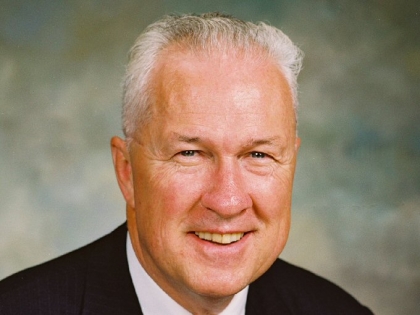
Adopted State Budget Increases Taxes on Utilities—Ratepayers Will Pay More
Dale M. Volker
April 30, 2009
(DEPEW, NY) Senator Dale M. Volker (R-I-C, Depew) today voted NO on another tax and spend bill drafted by New York State Democratic Budget, that would create a new higher utility tax on ratepayers throughout New York State. This new tax increase will increase to 2 percent from the previous rate of 0.33 percent. Previously under state law, the "assessment" on utilities such as electric, gas and telephone companies was used only to pay the expenses of the Public Service Commission and other agencies that regulate utilities.
By raising the assessment from 0.33 percent to 2 percent, the Democratic crafted budget bill would generate millions from ratepayers across New York State to balance a $132 BILLION tax and spend budget. The new utility assessment is expected to raise $632 million per year. Of that, roughly $90 million will pay for expenses of the PSC and other regulatory agencies. The remaining $542 million is expected to go to the state's general fund. The 2 percent rate applies to electric and gas utilities, as well as state-regulated private steam and water utilities. As part of this budget bill telecommunication companies have been exempted from this new increase in tax.
“This State Budget is simply out of control,” said Senator Volker. “Every day we see new spending and taxing provisions being passed by the Democratic Majorities in the State Senate and State Assembly. With the budget spending over $10 BILLION more from the previous year, and with monies we are receiving from the Federal Stimulus Package that are being utilized to backfill more spending, we will be having mass tax increases coming down the pike in the next 18 months if not sooner. This is just the most irresponsible budget I have ever seen since coming to the New York State Legislature.
With industrial and commercial electric power costs about 40 percent above national averages, energy costs are the second most significant cost-competitiveness factor cited by the business community. This is especially important to western New York businesses and manufacturers. In part, New York’s high energy costs are driven by a growing array of state-imposed assessments – the System Benefit Charge, the Renewable Portfolio charge, and new costs related to the purchase of CO2 emission allowances – which together add nearly 10 percent to the cost of electric power.
“We are simply going in the wrong direction,” said Senator Volker. “Instead of making the cost of doing business in this state less expensive in order to create and retain good jobs for our region, we are going in the opposite direction. Taxing more, spending more, and cutting less will only exacerbate the exodus of jobs from our region, and make our residential and commercial ratepayers foot more of the bill to pay for out-of-control spending by the State of New York. That is exactly what is taking place in the adopted New York State Budget, and why I voted NO.”
-30-
Share this Article or Press Release
Newsroom
Go to NewsroomSenator Volker Fights For Lower Gas Prices
April 30, 2008

Senator Volker Fights For Lower Gas Prices
April 30, 2008